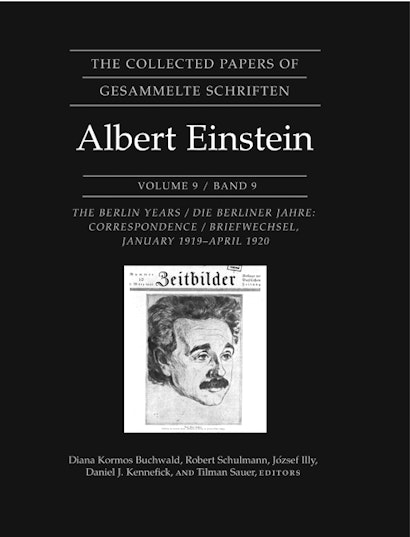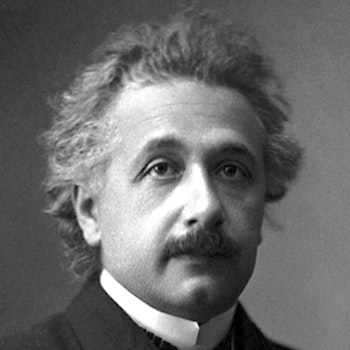History of Science & Knowledge
The Collected Papers of Albert Einstein, Volume 9: The Berlin Years: Correspondence, January 1919 - April 1920


Hardcover
- Price:
- $190.00/£155.00
- ISBN:
- Published:
- Oct 31, 2004
- Copyright:
- 2005
- Pages:
- 776
- Size:
- 7.5 x 10 in.
- 15 halftones.
The present volume, set in the turbulent post-World War I period, finds Einstein awaiting news of the 1919 British eclipse expedition to test the general relativistic prediction of the deflection of starlight by the sun. With the expedition’s success, he becomes the first science celebrity of our age. Deeply interested in the other, stellar redshift test of his theory, Einstein supports astronomers engaged in experimental work on the issue. Piqued by early suggestions of a unified field theory, he ponders how to unify gravitation and electromagnetic field theory and also works to resolve contradictions between the new quantum physics and relativity. His open-minded exchanges with colleagues may challenge his later image as the stubborn critic of quantum mechanics.
We see Einstein deeply engaged in discussing social and political issues, participating in humanitarian efforts, and intervening on behalf of intellectuals condemned to death after the fall of the Bavarian Soviet republic. He faced anti-Semitic outbursts, reflected increasingly on his own identity as a Jew and assisted in efforts toward the establishment of the Hebrew University. As an internationalist opponent of war, and a German-speaking Swiss citizen whose renown was sealed by the Englishman Eddington’s confirmation of relativity, Einstein mitigated postwar hostility toward German scholars.
Correspondence with family and friends documents his divorce, remarriage to his cousin, and his closeness to his two sons. Notwithstanding evidence in newly uncovered material concerning efforts to lure Einstein back to Switzerland, and also to the Netherlands, Einstein, entertaining high hopes for the young Weimar Republic, remained in Berlin. This volume reveals new facets of Einstein as he constructively participated in German and European scientific, academic, and cultural life.
